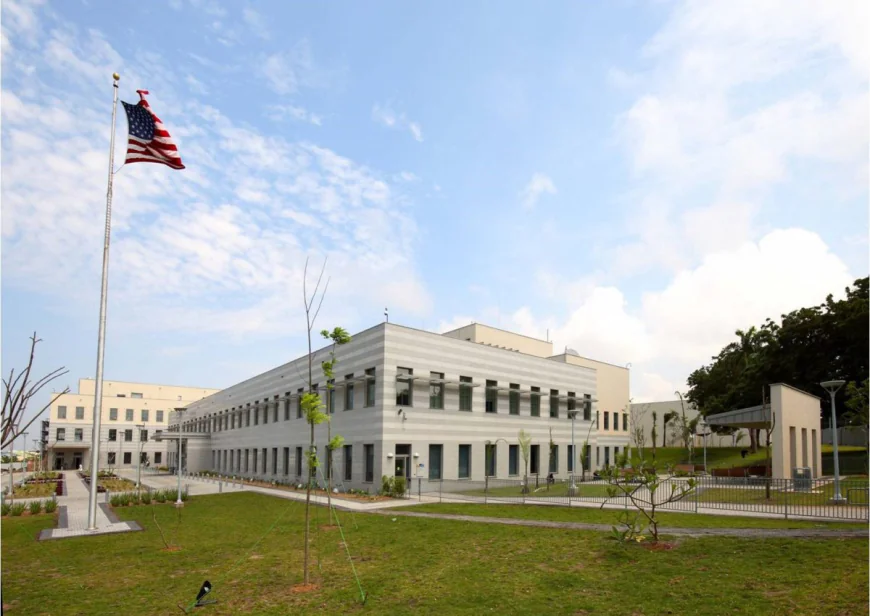U.S. Embassy Tightens Visa Scrutiny on Ghanaian Applicants Amid Rising Fraud and Fixer Scams
Over $6.6 million lost by unsuccessful Ghanaian applicants in 2024 alone, as new Trump-era guidelines redefine the U.S. visa process

The U.S. Embassy in Ghana is reinforcing its visa application protocols with a sharper focus on student visa applicants, social media activity, and fraud prevention—following revised policies introduced by the Trump administration.
In an exclusive interview on Joy FM’s Super Morning Show, Elliot Fertik, the Consul General, unpacked ten critical insights Ghanaians must know before applying for a visa. His remarks come amid surging demand, persistent denial rumors, and the growing influence of unscrupulous “visa fixers.”
1. Social Media Is Now a Screening Tool
All student visa applicants must now ensure their social media profiles are set to public before interviews.
“We reserve the right to vet any applicant’s online presence, especially students,” Fertik confirmed.
2. Posts Can Affect Approvals
Asked whether anti-American posts could jeopardize an application, Fertik replied: “It could.”
He stressed that background checks are not about silencing speech, but assessing visa eligibility holistically.
3. Overstayers Face Harsh Penalties
Fertik warned of visa bans, criminal charges, or lifetime ineligibility for those who overstay.
“You make it harder for others when you break the rules,” he cautioned.
4. Beware of Fixers and Fake Promises
From fake “guaranteed slots” to empty promises of visa approvals, Fertik minced no words:
“They’re lying. They’re ripping you off. And we’re hunting them down with the Ghana Police.”
5. Your Interview Is Your Key
Forget flashy documents—what you say matters more.
“Officers often decide based on your interview responses, not your paperwork,” Fertik emphasized.
6. There Are No Quotas or Country Bias
“There’s no scheme to deny Ghanaians,” he assured.
“Every case is judged on its own merits. Many are denied—but many are also approved.”
7. Appointment Delays Are Demand-Driven
Since 2019, application payments have tripled, straining the system.
Advice: “Apply far in advance and ignore anyone promising faster access.”
8. Yes, Visa Fees Are Legal—Even if You’re Denied
The $160+ fee is non-refundable because the U.S. government incurs processing costs, regardless of outcome.
9. Slot-Blocking is Real—and Illegal
Scammers booking and selling interview slots will be prosecuted.
“We’ve made recent arrests and are actively monitoring these criminal activities,” said Fertik.
10. A 60% Success Rate Is Still Possible
Despite tough rules, Ghana’s visa success rate hovered around 60% in 2024, contradicting perceptions of mass rejections. But over $6.6 million was lost to rejected applicants.
■ Apply Smart, Stay Honest
The U.S. Embassy’s message to Ghanaians is clear: Follow the rules, ignore the fixers, and prepare well.
“We want more law-abiding Ghanaians to visit and study in the U.S., but you must qualify fairly,” Fertik concluded.
For accurate guidelines, visit the official U.S. Embassy Ghana website or contact the embassy directly.


